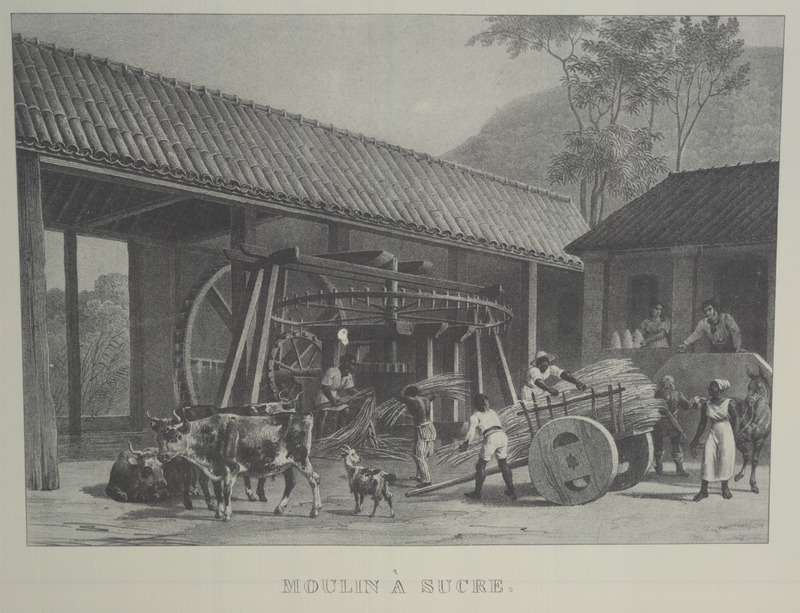Plantation Mill Yard and Sugar Mill, Brazil, 1830s

A mill yard and water-powered mill with vertical rollers; cart with canes to be crushed; the plantation manager (?) and his wife (?) are on the veranda; next to the woman are sugar cones. The same illustration, captioned Brazilian Sugar Mill, was later published in the Illustrated London News (March 29, 1845; vol. 6, p. 197), with a brief account of slave labor on Brazilian sugar plantations. For an analysis of Rugendas' drawings, as these were informed by his anti-slavery views, see Robert W. Slenes, African Abrahams, Lucretias and Men of Sorrows: Allegory and Allusion in the Brazilian Anti-slavery Lithographs (1827-1835) of Johann Moritz Rugendas (Slavery & Abolition, vol. 23 [2002], pp. 147-168). (Thanks to Lyle Browning for his help with the mill identification.)
Image Title
Plantation Mill Yard and Sugar Mill, Brazil, 1830s
RegID
SI-OB-333
Date
1830-1840
Title
Plantation Mill Yard and Sugar Mill, Brazil, 1830s
Source
Johann Moritz Rugendas, Voyage Pittoresque dans le Bresil. Traduit de l'Allemand (Paris, 1835; also published in same year in German). Reprinted in Viagem Pitoresca Atravès do Brasil (Rio de Janeiro, 1972; images shown on this website), and in color from original water colors, in Viagem Pitoresca Atravès do Brasil (Editora Itatiaia Limitada, Editora da Universidade de Sao Paulo, 1989) [NOTE: both 1835 French and German original editions were published in black/white].
Language
French
Item sets
New World Agriculture & Plantation Labor
Spatial Coverage
South America--Brazil
Reproduced In
Johann Moritz Rugendas, Voyage Pittoresque dans le Bresil. Traduit de l'Allemand (Paris, 1835; also published in same year in German)
Researchers
Handler, Jerome; Tuite, Michael; Randall Ericson; Henry B. Lovejoy Graduate Research Assistants: Tiffany Beebe; Travis May
Identifier
NW0295